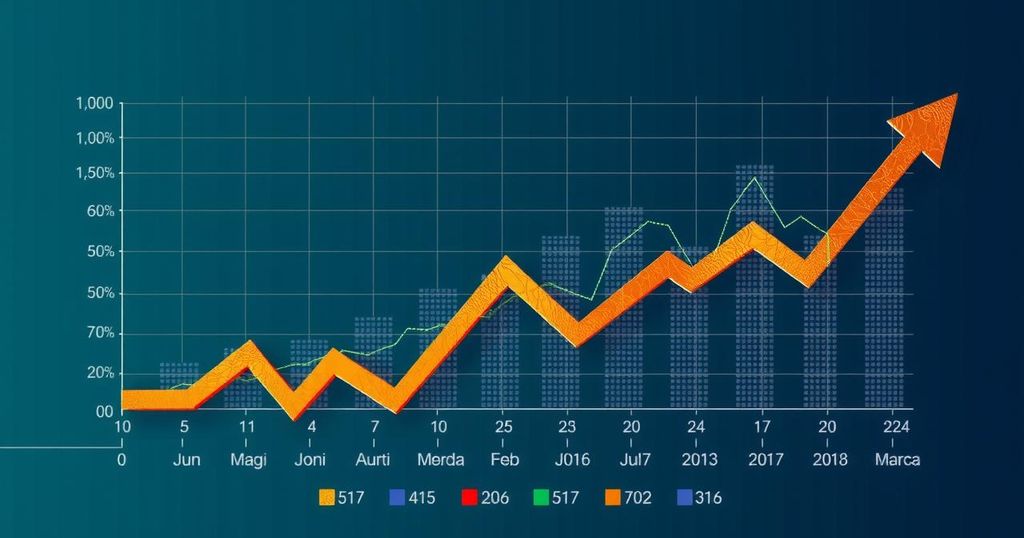The Economy’s Strength and Its Impact on the Upcoming Election
The American economy exhibits growth with a 2.8 percent GDP increase in the third quarter amid cooling inflation. Despite this, voter sentiment remains pessimistic, seeing the economy as faltering. Polls show economic issues as key in the election, with Trump trusted more than Harris, although the gap is closing. Distractions into immigration discourse may hinder Trump’s campaign effectiveness while political maneuvers continue in several states.
As Election Day approaches, the American economy demonstrates signs of strength, revealing that consumer spending is robust and inflation rates are abating. According to a governmental report released today, the Gross Domestic Product (GDP) grew at an annualized rate of 2.8 percent during the third quarter. This economic growth presents a positive narrative to voters, suggesting a recovery from the impacts of the pandemic. Nonetheless, despite this progress, a significant majority of voters continue to rate the economy as merely fair or poor, indicating lingering dissatisfaction that may influence the upcoming presidential election. In a recent Times poll, voters indicated that economic issues are paramount in their decision-making process. Historically, they have exhibited greater trust in former President Donald Trump concerning economic matters, although the gap in confidence between Trump and Vice President Kamala Harris has narrowed from 13 points to just six points over the past month. Michael Gold, a reporter covering Trump’s campaign, noted the effectiveness of Trump’s focus on the economy, stating, “When Trump taps into voters’ concerns over the economy, it can be very effective. A lot of voters see the economy as a referendum on the current administration, and when Trump focuses on that, he can be very strong.” However, he also pointed out a strategic challenge for Trump: his tendency to diverge from economic topics in favor of immigration issues, which he believes were instrumental to his 2016 victory. Despite advice from his consultants to maintain an economy-focused narrative, Trump continues to interject immigration into discussions about economic events. In other political developments, the Supreme Court has allowed Virginia to expunge approximately 1,600 potentially ineligible voters from its rolls, while Harris has attempted to clarify her stance following President Biden’s controversial remarks regarding Trump supporters. The political battleground in Arizona remains highly competitive, as Republicans focus on immigration and Democrats prioritize abortion rights. Additionally, well-funded operators are taking advantage of currently lax electoral regulations. Arnold Schwarzenegger, former governor of California, has publicly endorsed Harris. Comprehensive fact-checking of Harris’s remarks from a recent speech has also been conducted.
The American economy has been facing unusual circumstances due to the prolonged effects of the COVID-19 pandemic. Economic recovery has been a pivotal topic as it profoundly impacts voter sentiment in the lead-up to elections. The current rise in consumer spending and the reduction of inflation rates are encouraging signs for the economy; however, voter perception remains mixed, significantly influenced by personal and national economic challenges faced over the past few years. Polls indicate that voters prioritize economic issues, and their trust in candidates to manage these concerns heavily influences electoral outcomes.
In summary, while recent economic indicators suggest a recovery, voter perception remains marred by past inflation and dependence on economic performance as a measure of overall governance. With Election Day imminent, the discourse surrounding economic issues will be critical in shaping the outcomes of the elections, particularly as candidates navigate their messaging strategies.
Original Source: www.nytimes.com




Post Comment